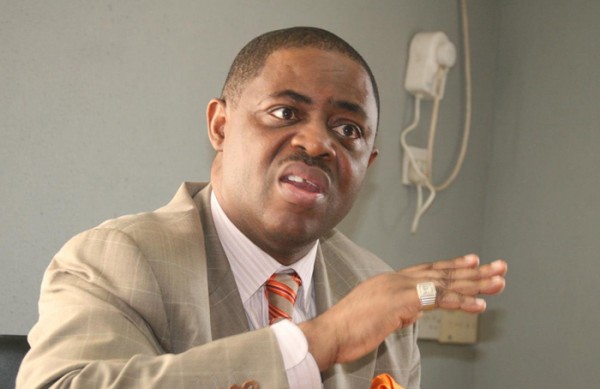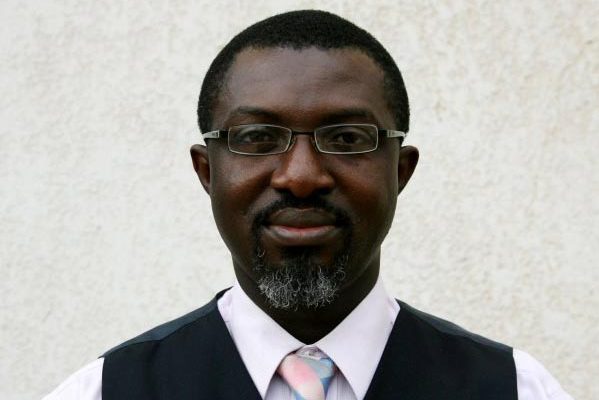 A former Minister of Aviation, Chief Femi Fani-Kayode, who is currently facing trial for money laundering, has linked his travails to a calculated attempt by the federal government to smear his good name and diminish his status.
A former Minister of Aviation, Chief Femi Fani-Kayode, who is currently facing trial for money laundering, has linked his travails to a calculated attempt by the federal government to smear his good name and diminish his status.
Mr. Fani-Kayode, who was also a spokesperson to former President Olusegun Obasanjo, said that the campaign assumed its peak after he dumped the Peoples’ Democratic Party, PDP, for All Progressives Congress, APC.
“The truth is that for the last five years Chief Fani-Kayode has been subjected to the most hideous and vicious persecution by the Federal Government simply due to his political beliefs and his outspoken views yet he has courageously risen to the occasion and he has refused to be intimidated, cowered or silenced,” Mr. Fani-Kayode said in a statement issued on Tuesday by Kola Olapoju, his lawyer.
The statement added that “This is despite the fact that the Federal Government, through their incessant and relentless persecution, has sought to make life as uncomfortable for him as possible, to smear his good name, to strip him of his dignity and to diminish his status”.
Mr. Fani-Kayode, a lawyer, was first docked in 2008 before Justice Ramat Mohammed of the Federal High Court, Lagos, on a 47-count charge of money laundering by the Economic and Financial Crimes Commission, EFCC. In 2012, Mrs. Mohammed was transferred out of the Lagos division and the case was transferred to Justice Binta Nyako. However, the matter suffered another setback as Mrs. Nyako was also transferred out of the division in 2013 paving the way for Justice Rita Ofili-Ajumogobia to continue with the trial.
“Each time these same charges are presented he has had to be re-arraigned and he has had to take a fresh plea,” his lawyer lamented. “This has been onerous, harrowing and vexatious to the spirit, but Chief Fani-Kayode, being a law-abiding citizen who has done everything possible to co-operate with the courts and who has nothing but the highest level of respect for the judiciary, has continued to weather the storm and go through the legal processes and he has never publicly complained, written or spoken about his travails in court. This is because he believes in due process and, being a lawyer himself, he respects the courts and accepts the fact that matters that are sub-judice should not be discussed”.
After he was re-arraigned before Mrs. Ofili-Ajumogobia in January, 2013, Mr. Fani-Kayode’s attorneys began to contest the fiat empowering the prosecution to handle the matter on behalf of the Attorney-General of the Federation. The defence insisted that the fiat singled out Festus Keyamo, the lead prosecution counsel, to appear before the court and not any other lawyer from his chambers. The judge ruled in the defence’s favour.
Last month, Mr. Keyamo appeared to lead the prosecution, but with an amended 40-count charge. Again, the defence raised objections, arguing that the charges were “vague” since the prosecution did not mention from whom their client received money in the money laundering allegation. This time Mrs. Ofili-Ajumogobia overruled them, noting that it was inconsequential to state the source of the money. She then fixed March 5 for Mr. Fani-Kayode’s re-arraignment.
“Chief Fani-Kayode has absolute confidence in the Nigerian judiciary, is more than ready to take his plea and will continue to present a vigorous defence to what are essentially baseless, malicious and politically-motivated charges which he has been fighting for the last five years”, Mr. Olapoju said.
Mr. Fani-Kayode further enjoined the media to always do the necessary research and to get their facts right in the reportage of his trial proceedings.
“The charges for which he will be re-arraigned on March 5 are not fresh charges and are nothing new. They are exactly the same old money laundering charges that the prosecution filed in 2008 except for the fact that seven counts have been removed and the charges have been reduced to 40 counts as opposed to 47 and the fact that the amount of money alleged to have been laundered has been reduced from N230 million to N99 million.
“It is also important to take note of the fact that even though this matter has been prosecuted by Mr. Festus Keyamo since 2008, he did not obtain a fiat to prosecute the case as is required by law until June, 2013 from the Attorney General of the Federation. It ought to be noted that it was only after Chief Fani-Kayode left the PDP and joined the APC in May, 2013 that the Attorney General of the Federation and Minister of Justice saw fit to grant Keyamo a fiat to prosecute the case.
“We leave it to the public to make their own deductions about this curious and sudden desire by the A-G (Attorney-General) to grant a fiat for a prosecution that he and his predecessors in office were reluctant to do for five good years”, Mr. Olapoju said.





Nigerian Political Parties and Politicians: a Call for National Unity
Foreword to Nigerian Political Parties and Politicians – A Call for national unity by Professor Akinjide Osuntokun
I am writing with delight a foreword to this interesting book on Nigeria’s political parties and politicians written by Bolaji Samson Aregbeshola. The late Chief Bola Ige of evergreen memory went over this same course in one of his book. No country can develop without political leadership. Nigerians generally regard politics as a dirty game and many decent and knowledgeable people avoid it like a plague. But it is apparent that no matter how technologically developed a country may be and no matter the amount of resources available to it, without the mobilization of people and resources which is generally provided by political leadership, that country will not develop. This credo is central to Aregbeshola’s book. This book goes back into our recent history to point out the dangers posed to the polity and the state by politics based on ethnic differences and tribalism. Even though this problem is universal, but in our case it is central to the politics of Africa. There is little or no political ideological debate among African politicians rather what we have is politics of primitive accumulation and over-emphasis on primordial differences as a strategy of attracting support.
This according to the author has become a recurring decimal. This poses a serious danger to the survival of our country. We should learn from disappearing or disappeared states like Sierra Leone, Liberia, Somalia, the Ivory Coast and the Democratic Republic of Congo where the forces of Proto nationalism have destroyed what was earlier on viable political entities. Nigeria is too big to court this fate because whatever happens to Nigeria will have reverberation all over Africa.
This is why reading this book is a must for all of us if we are to avoid the mistakes of the past that has led to our present cul de sac where rather than making progress we are retrogressing. This book is readable and it is not marred by political science terminologies that may make non-intellectuals uncomfortable. The message of this book is that those who do not learn from history are doomed to repeat it.
Professor Akinjide Osuntokun